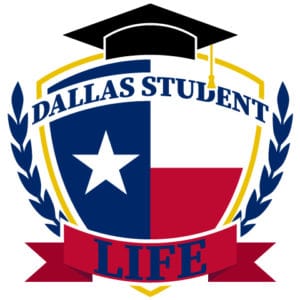Work Experience
There are pros and cons to hiring college students with no work experience the same as there is to hiring college students with work experience. But how can you as a student get work experience?
Today we are going to look at how to get the best work experience for you with your current opportunities. We will look at whether or not you have no work experience, some work experience or a lot of previous work experience. And what work experience you get in your university or college years can really help your search for graduate jobs. So it’s worth bearing in mind!
No Work Experiences
You’ve been lucky to have not had to work during your high school years; fantastic. For whatever reason that may be, now comes the time when you need to work. No work experience makes for a very short resume. It’s like wearing a prom dress or pants that’s five inches shorter than it should be.
Do you have the motivation and the willingness to work? Awesome! Think about this, you’re applying for your first job ever and the application is so blank. Keep calm! Instead of listing experiences, talk highly of your qualities; such as any volunteering you may have done, perfect attendance, or maybe even skills that you developed as a classroom aide.
These are all good qualities. And remember to let your willingness to learn and your sparkly personality shine.
Don’t let your no work experience hold you back from applying for the job you want. You’re not the only one. There are a lot of employers that like to train people to do assignments their way. They also look toward the new generation for new and fresh ideas. They love seeing you walk through their doors.
Work Experiences
Be thankful that you have gained some work experience, it puts you in as a front runner. Hopefully, during your time working, you have gathered valuable skills. Employers look for college students to hire that have worked because they do have some work experience. They look for employees that have developed communication, leadership and management skills.
Set aside from working, have you done any volunteer work? This is a great way to show that your self-motivated; a huge characteristic to market yourself. Make sure that you sell your skill sets. Gaining work experience and ethics will go far towards being successfully employed. Put together a great portfolio to go along with your resume; it will make a long-lasting impression.
Work Experience or Not
College students are valuable employees regardless of whether you have work experience or not. Potential employers will look for certain things such as are you seeking a part-time or full-time position, a consistent schedule, work history, and flexibility. It all comes down to how mature, dedicated and driven you are.
There are many reasons why employers hire college students.
- They like that they can pay you minimum wage.
- Chances are you’ll have less work history and they can train you to do the job that they hire you for the way they want it done.
- Your schedule is more than likely more flexible.
For example, a parent with children may have to work certain hours so that they can tend to their children’s needs. Four, they look for employees who can solve problems, all businesses have problems. If you are a great problem solver, make sure you put that on your resume. For more advice on how to write an excellent resume, look here.
On the flip side, there are many reasons why employers don’t hire college students.
- You’ll have less work experience and they may not want to have to spend a lot of time training you.
- School will be and should be a priority.
- Your schedule may not be conducive to their work hours where they need you most; like the rush hours.
Take every opportunity that you are given. Learn job skills and develop work ethics that you can carry forward into your chosen career after you graduate. The more you learn the more valuable you will be.
Work-study Employment
Work-study programs are funded federally and sometimes through the state. These programs provide part-time jobs for full or part-time students and undergraduate as well as graduate students. They encourage community service along with your work related major.
How do you go about getting a work-study job? There is a free application that comes with your FASFA (Federal Student Aid) packet. Fill out the application and return it with your FASFA. Typically, you will be responsible in finding your own work-study employment. However, there should be a list of openings either on paper or online; if not go see your Academic Advisor.
According to the U.S. Department of Labor there are over 3,400 colleges and universities that offer these programs. You do need to know that applying for a work-study job doesn’t mean that you will be approved.
It simply means that you are interested based on availability. One of the downfalls to a work-study program is that you can only earn what has been awarded to you; therefore, you can not work as many hours as you want.
Work-study employment can be found on-campus or off-campus. Here are a couple of things you should know about the work-study program. One, they usually pay only minimum wage, after all it is federally funded, or state funded.
Two, according to the Sallie Mae report, How America Pays for College, on average $2,353 are awarded to a student for the work-study program. Three, earning money through work-study is taxable. So, yes, you will have to file it on your tax return; and chances are as a student you could receive a refund. Good luck and happy work-study job hunting.
Texas College Work-Study Program (TCWSP)
Is the work-study program for all Texas colleges and universities? TCWSP strives to provide part-time jobs to eligible students. They look at a student’s financial need; you must show a financial need. You must be a Texas resident, register for the Selective Service (unless exempt), and enrolled at least part-time.
You must not be a recipient of any form of athletic scholarship during the semester that you are granted a TCWS or you must not be enrolled in a seminary or other program leading to ordination.
What Employers Want from College Students
In 2010, Hart Research Associates asked 302 company executives what they wanted most from college students as learning outcomes and goals. For these reasons, employers are asking colleges and universities to step-up their preparation skills to make college students more ready to enter into the work force.
- 90% of employers will ask college students to broaden their skill range and take on more responsibilities.
- 89% of employers want employees to be able to effectively communicate orally and in writing.
- 84% of employers would like for students to be required to complete some type of senior project.
- 81% of employers are stressing to colleges and universities the importance of research skills along with the ability to analyze the data or evidence.
- 81% of employers want college students to increase their focus on critical thinking and analytical reasoning skills.
Valuable Employee Traits
As a middle-aged woman, I could sit and talk for hours about what can make you a valuable employee. One of the things that was instilled in me was to be one time. Being on time shows maturity, dedication and self-motivation. These soft skills are highly desired.
Here are a 5 tips on how to be a valuable employee after you graduate.
- Have integrity. Words are so overused, stick with the old phrase, actions speak louder than words.
- Be a team player. In other words, work well with others.
- Be reliable. Show up for work when you are supposed to.
- Take initiative. You know what to do because you’ve been given a job description; don’t stand around waiting for your boss to tell you to get busy.
- Think ahead. Come up with the next best idea. These traits will blow your bosses away, secure your job and set you up for promotions. Or may even pave the way for you to establish your own business!
Most students only think in terms of what is expected of them while their going to school. Very few college students look toward their future and learn what is needed going forward.
Do yourself a great justice and go beyond prepping yourself for your career. Don’t just be college graduate ready; be work force ready. Know what employers are wanting and looking for; strive to be that employee. But getting from academia to industry is tough and here is a comprehensive guide on doing just that.

